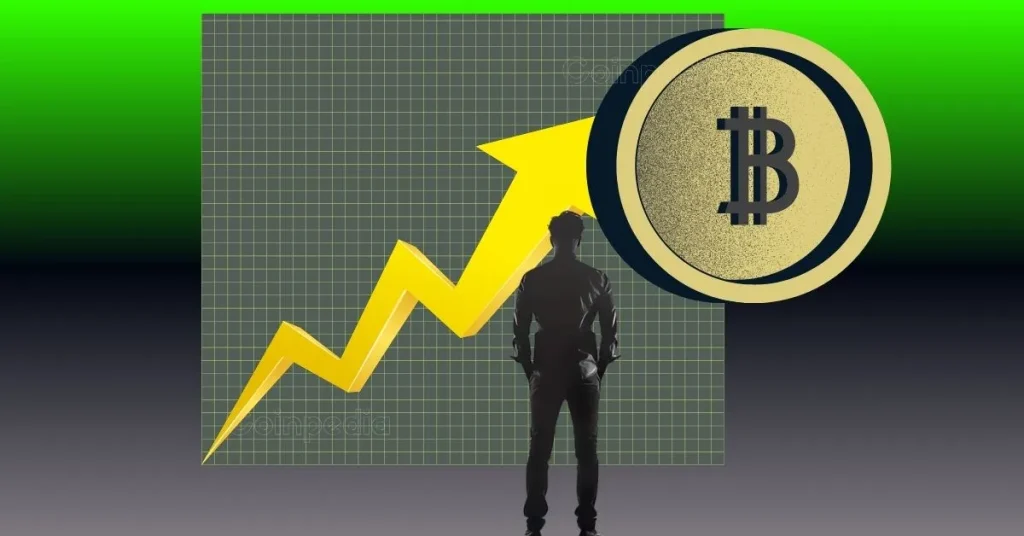
This is the moment the world of crypto assets (virtual currency) has been waiting for. The US Securities and Exchange Commission (SEC) has finally approved America’s first Bitcoin spot ETF (exchange traded fund).
Does this mainstream investment product contradict Bitcoin’s original goal of breaking away from Wall Street? Of course it is.
And are such ETFs necessary for the growth of crypto assets? This too is a yes. The crypto industry has been unable to reach the mainstream on its own.
That’s why many in the crypto community have been waiting for a Bitcoin ETF for years, despite the obvious contradictions.
The SEC has rejected one application after another, but recently the tide has turned. No one knows for sure what is driving Bitcoin prices higher, but the strong excitement around ETFs is a pretty solid factor.
Bitcoin is up nearly 160% in 2023 and 50% in the last six months alone. This surge is widely acknowledged to have been driven by expectations for ETFs.
What Satoshi Nakamoto aimed for
Let’s talk about an issue that many people turn a blind eye to.
Satoshi Nakamoto, the creator of Bitcoin, developed the world’s first crypto asset to reduce dependence on financial institutions. Bitcoin’s invention was in response to the 2008 financial crisis and the associated collapse of trust in the banking system.
The very first sentence of Bitcoin’s white paper envisions “a pure peer-to-peer version of electronic cash that enables online payments from one party to another without going through a financial institution.”
In other words, Bitcoin is designed to be something other than an ETF.
ETFs allow investors to invest in Bitcoin with traditional brokerage accounts through the stock market. Institutional investors applying for ETFs include the very “financial intermediaries” that Satoshi Nakamoto wanted to eliminate, such as BlackRock, Grayscale, and Fidelity.
And one of crypto maximalists’ favorite phrases is “not your keys, not your coins.”
This essentially means that if you hold your Bitcoins in a crypto exchange wallet instead of your own, for example, those Bitcoins are not truly yours.
ETFs introduce yet another level of divergence. ETF investors aren’t buying actual Bitcoin, they’re just investing in the price of Bitcoin.
And finally, Satoshi Nakamoto warned that “intermediary costs increase transaction costs.” Bitcoin ETFs certainly do not solve this problem. Instead, they charge management fees, with Grayscale’s fees amounting to up to 1.5%, even though competition has already driven down fees for some issuers.
So why is the crypto world excited about ETFs? ETFs are a long way from the “decentralized future” we’re supposedly fighting for.
Price rise and mainstream adoption
The simple answer, of course, is price. With a few exceptions, most of the industry is still highly vulnerable to the vagaries of crypto asset prices.
If the market slumps, venture capitalists will lose interest, and sponsorship and advertising budgets will decline. Consumer-oriented services will find it difficult to acquire new users. Additionally, various altcoins tend to rise and fall following Bitcoin.
The recent rise in Bitcoin prices can be attributed to major financial institutions and the SEC. But the industry isn’t complaining too much.
There is also discussion about mainstream dissemination. This means that if physical ETFs are approved, there will be an influx of new investors who don’t have the hassle of opening an account at a crypto exchange, setting up a wallet on their smartphone, or running a node on their home computer. become.
At a more fundamental level, the presence of well-branded institutional investors in the market could reassure investors who associate crypto assets with fraud.
Thanks to ETFs, the crypto community has enjoyed several weeks of relatively positive media attention, free from the barrage of Sam Bankman-Fried news in 2023.
proof of trust
What ETFs really offer is greater reliability. In this case, Wall Street’s involvement would be conditional on government approval. The SEC’s approval, after years of rejecting ETFs over concerns of “market manipulation,” comes from SEC Chairman Gary Gensler, one of Bitcoin’s fiercest critics. , indicating that they have accepted crypto assets to some extent, albeit reluctantly.
In theory, the SEC’s presence shouldn’t be that big since crypto assets are independent from governments. However, in reality, the Crypto Twitter community is paying close attention to most of Chairman Gensler’s words and actions.
But Chairman Gensler’s apparent antipathy towards the industry, manifested in a lack of regulatory clarity and numerous lawsuits against the industry’s major players, has not killed the industry.
Nor has it stopped crypto assets from booming in other parts of the world, particularly Asia. However, the cost is high.
Some crypto companies have been embroiled in SEC lawsuits for years. Others choose to avoid the United States altogether, even though it is the world’s largest economy and a major source of capital and talent.
Cryptoassets require some level of government approval. It also requires involvement from Wall Street. The future of crypto assets is not like the Wild West, but rather like Japan, Hong Kong, and Singapore, which have some of the strictest regulations in the world.
Building decentralized projects is difficult enough on its own, but even more so in a bear market with hostile regulators, wary investors, and wary consumers. Rather than Wall Street culture defining the crypto industry, we hope it becomes the seal of authenticity for more crypto projects to succeed.
|Translation and editing: Akiko Yamaguchi, Takayuki Masuda
|Image: Shutterstock
|Original text: ETF Euphoria Shows Bitcoin Needs Wall Street After All
The post ETF approval frenzy shows Bitcoin needs Wall Street | CoinDesk JAPAN appeared first on Our Bitcoin News.

 1 year ago
87
1 year ago
87














 English (US) ·
English (US) ·